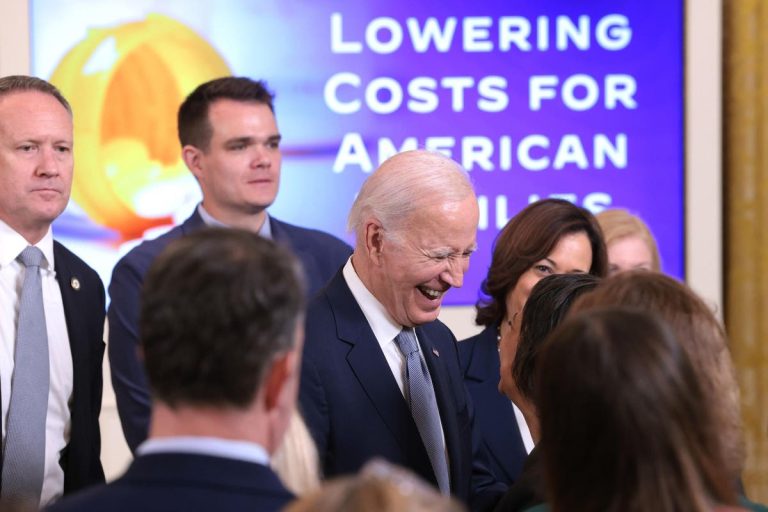The Biden Administration has announced its list of the first 10 drugs that will be subject to price negotiations, a step allowed for the first time when Congress passed last year’s Inflation Reduction Act. The Pharmaceutical Manufacturers’ Association (PhRMA), the main drugmaker lobby, blasted the law. No surprise there. But its reasoning is evidence of how perverse the US health system is.
PhRMA objects to Congress “giving a single government agency the power to arbitrarily set the price of medicines with little accountability, oversight or input from patients and their doctors.”
And the drug industry is mounting a furious campaign to kill the idea before the lower prices begin to kick in in 2026. That includes efforts to lobby Congress to repeal the 2022 law and convince the courts to overturn the law.
Negotiations Are Not Price Controls
But wait a minute. This isn’t like price controls where government tells a supermarket how much it can charge for a banana. Most economists agree that such efforts to cap market prices usually are doomed to fail.
When it comes to drugs, the government agency, the Department of Health and Human Services (HHS), isn’t acting as a regulator. It is a consumer. And not just any consumer. It is by far the biggest purchaser of prescription drugs on the planet.
Medicare spent more than $200 billion, before rebates, on Part D drugs in 2021, according to the Kaiser Family Foundation. And it paid an additional $40 billion on Part B injectable drugs, such as anti-cancer infusions, which are not included in the price negotiation program.
HHS says the 10 drugs for which Medicare wants to negotiate prices represented about $50.5 billion in gross covered drug costs last year, again not counting rebates.
What Buyer Wouldn’t Use Its Market Power?
In any world but the one the US health care system lives in, any buyer that spends $200 billion annually on a product would be negligent if it did not use its market power to negotiate prices. I imagine, for example, that Pfizer
PFE
Keep in mind that Congress limited price negotiations only to certain drugs with some important characteristics in common. They have been on the market for many years, have no generic competitors, and thus are very expensive. One reason for the lack of competition: The big drugmakers have found ways to game the patent system to block lower-cost alternatives.
Traditional fee-for-service Medicare sets payment rates for nearly everything else it buys, including the services of physicians, hospitals, nursing homes, physical therapists, and home health care. Really, everything except drugs and devices.
But for six decades, Congress has prohibited Medicare from negotiating drug prices. Instead, a drugmaker sets a price and the government blindly pays it. In fact, Medicare generally is left with a binary choice: Either pay what the drugmaker demands or don’t pay at all.
Indirect Help For Beneficiaries
That’s one reason why drug prices are so much more expensive in the US. For example, the median price for the blood thinner Eliquis, one of the drugs on Medicare negotiation list, is $440 in the US but $96 in Germany and $80 in Greece. These are not market prices because, with no competitors, there is no true market for these drugs
Medicare beneficiaries, meanwhile—the consumers of the drugs—have no ability to negotiate either. True, some may receive discounts at the discretion of the manufacturer. But generally, they must pay out of pocket a share of whatever Medicare pays. The amount depends on a wide range of factors but most will pay something, based on the inflated prices the companies charge Medicare. HHS estimates Medicare beneficiaries pay about $3.4 billion out-of-pocket annually for the 10 drugs subject to negotiation.
Who Really Does Drug Research?
PhRMA and its supporters say high US drug prices are a major incentive to do the difficult work of drug research, which often results in failure. If we are not well compensated for the rare winners, they say, we’ll develop fewer drugs.
I’m not convinced. Much cutting-edge, early stage research is done by small start-ups, which bear the financial risk, not by big pharma. The large firms often acquire successful drugs (or even buy the companies that make them) and act more as marketers than researchers.
And remember, Medicare is allowed to negotiate prices of drugs that have been on the market for years. The sellers have long since recouped their costs and made substantial profits. Besides, selling drugs is what these companies do, and they’ll keep doing it, even with more modest returns to their investors.
That isn’t to say price negotiations won’t change their business models somewhat. Drug makers may focus research on more specialized, even more costly drugs that are exempt from negotiations.
PhRMA argues the law permitting negotiations is unconstitutional, largely for technical administrative reasons. Relying on the now common practice of judge shopping, they brought their case in west Texas, where they are likely to get a sympathetic hearing. And the case is almost certain to land at the Supreme Court.
Whatever the outcome of the industry’s legal claims, its economic argument against drug price negotiations is weak.
Read the full article here









